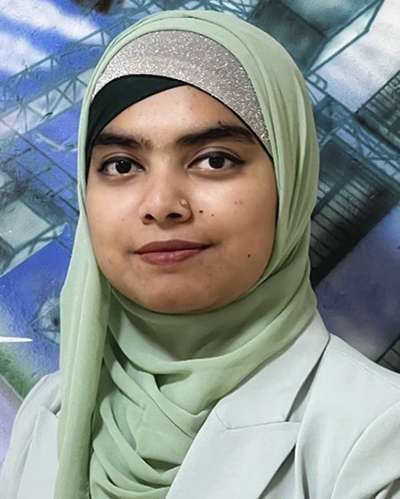WEBINAR
Experimental and Numerical Performance of Cement Bonded Geomaterials Stabilized with Plastic Waste
Thermal properties of soils play a key role in the design and performance of a civil infrastructure in cold regions and in nuclear waste repositories. Often in geotechnical engineering, significant importance is given to improve the mechanical properties of soils whereas limited studies were performed in developing a stabilization approach that would suffice both thermal and mechanical performance of an undesired geomaterial.
This presentation shows a novel stabilization approach using waste plastic and chemical additive to alter the thermal-mechanical properties of problematic soils in cold regions. Laboratory experimental studies were presented in an envelope of mix designs that facilitate the selection of geomaterial for different applications including as a pavement subgrade layer and backfill material. The experimental studies include tests to evaluate thermal conductivity, energy absorption, potential volume change, compressive strength, durability, and shear strength properties.
Numerical studies illustrate the heat transfer mechanisms in the stabilized soils when exposed to different heat sources. The results highlighted the spatial-temporal distribution of heat from the heat source inserted within the stabilized soils. In addition, the numerical studies illustrated the performance of a 3D pavement model with low-and-high thermal conductive stabilized subgrade soils. Validation studies were performed to evaluate the heat transfer process by comparing the experimental and numerical analysis data. This webinar presentation highlights the use of waste plastic as an effective material to lower the thermal conductivity of soil material and their potential use as a pavement subgrade and backfill material in geotechnical infrastructure construction.
December 14, 2022 | 12-1 PM EDT
Attend through Webex by clicking the Register Now link above. Please check your spam folder if you do not receive an email confirmation from Webex after registering.

Speaker – Tanzila Tabassum, Ph.D.
Dr. Tabassum is a Staff Engineer with the Transportation Division (TTD) located in Champaign, Illinois. Tabassum received her B.S. in Civil Engineering from the Military Institute of Science and Technology in Dhaka, Bangladesh, followed be her M.Sc. at Bangladesh University of Engineering and Technology. She then received her Ph.D. in Civil Engineering/Geotechnical from the South Dakota School of Mines and Technology where she also worked as a Graduate Research Assistant. Her areas of interest include soil mechanics, ground improvement, expansive and frost susceptible soil stabilization, soil erosion control, self-healing of soil, numerical modeling, and life cycle and sustainability analysis.

